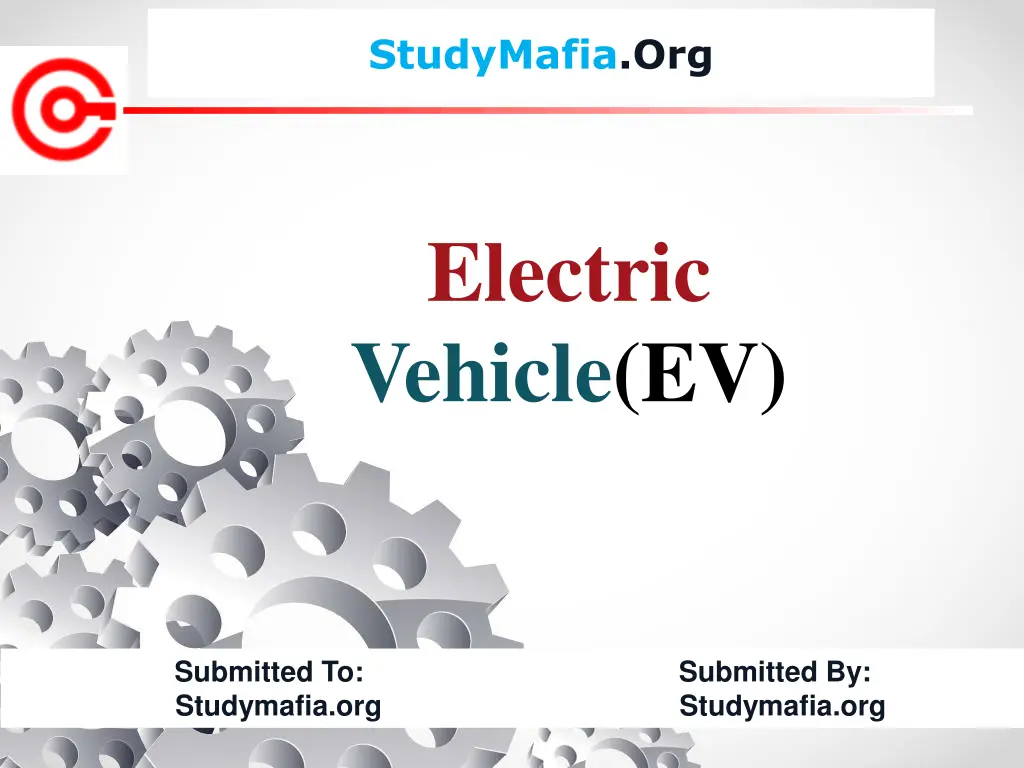
Electric Vehicles: Types, Benefits, and Future Trends
"Explore the world of electric vehicles (EVs) through this comprehensive guide. Learn about different types of EVs, their benefits, and the evolving technology shaping the future of transportation. Discover how battery electric vehicles (BEVs) and plug-in hybrid electric vehicles (PHEVs) are revolutionizing the automotive industry."
Download Presentation

Please find below an Image/Link to download the presentation.
The content on the website is provided AS IS for your information and personal use only. It may not be sold, licensed, or shared on other websites without obtaining consent from the author. If you encounter any issues during the download, it is possible that the publisher has removed the file from their server.
You are allowed to download the files provided on this website for personal or commercial use, subject to the condition that they are used lawfully. All files are the property of their respective owners.
The content on the website is provided AS IS for your information and personal use only. It may not be sold, licensed, or shared on other websites without obtaining consent from the author.
E N D
Presentation Transcript
StudyMafia.Org Electric Vehicle(EV) Submitted To: Submitted By: Studymafia.org Studymafia.org
Table Contents Definition Introduction Types of Electric Vehicles Benefits of Electric Vehicles Conclusion 2
Definition An electric vehicle (EV) is a vehicle that uses one or more electric motors for propulsion. 3
Introduction It can be powered by a collector system, with electricity from extravehicular sources, or it can be powered autonomously by a battery (sometimes charged by solar panels, or by converting fuel to electricity using fuel cells or a generator). EVs include, but are not limited to, road and rail vehicles, surface and underwater vessels, electric aircraft and electric spacecraft. 4
Types of Electric Vehicles Battery Electric Vehicles (BEV) Compared to an internal combustion engine, battery powered electric vehicles have approximately 99% fewer moving parts that need maintenance. Creates very little noise No exhaust, spark plugs, clutch or gears Doesn't burn fossil fuels, instead uses rechargeable batteries 6
Types of Electric Vehicles BEVs can be charged at home overnight, providing enough range for average journeys. However, longer journeys or those that require a lot of hill climbs may mean that the fuel cells require charging before you reach your destination, although regenerative braking or driving downhill can help mitigate against this by charging the battery packs. 7
Types of Electric Vehicles The typical charging time for an electric car can range from 30 minutes and up to more than 12 hours. This all depends on the speed of the charging station and the size of the battery. In the real world, range is one of the biggest concerns for electric vehicles, but is something that is being addressed by industry. 8
Types of Electric Vehicles Plug-in Hybrid Electric Vehicles (PHEV) Rather than relying solely on an electric motor, hybrid electric vehicles offer a mixture of battery and petrol (or diesel) power. This makes them better for travelling long distances as you can switch to traditional fuels rather than having to find charge points to top up the battery. 9
Types of Electric Vehicles Of course, the same disadvantages that apply to combustion engine vehicles also apply to PHEVs, such as the need for more maintenance, engine noise, emissions and the cost of petrol. PHEVs also have smaller battery packs, which means a reduced range. 10
Benefits of Electric Vehicles Lower running costs The running cost of an electric vehicle is much lower than an equivalent petrol or diesel vehicle. Electric vehicles use electricity to charge their batteries instead of using fossil fuels like petrol or diesel. 11
Benefits of Electric Vehicles Low maintenance cost Electric vehicles have very low maintenance costs because they don t have as many moving parts as an internal combustion vehicle. The servicing requirements for electric vehicles are lesser than the conventional petrol or diesel vehicles. 13
Benefits of Electric Vehicles Tax and financial benefits Registration fees and road tax on purchasing electric vehicles are lesser than petrol or diesel vehicles. T There are multiple policies and incentives offered by the government depending on which state you are in. 14
Benefits of Electric Vehicles No noise pollution Electric vehicles have the silent functioning capability as there is no engine under the hood. No engine means no noise. The electric motor functions so silently that you need to peek into your instrument panel to check if it is ON. 15
Conclusion All-electric vehicles, also referred to as battery electric vehicles (BEVs), have an electric motor instead of an internal combustion engine. 17
Thanks To StudyMafia.org
